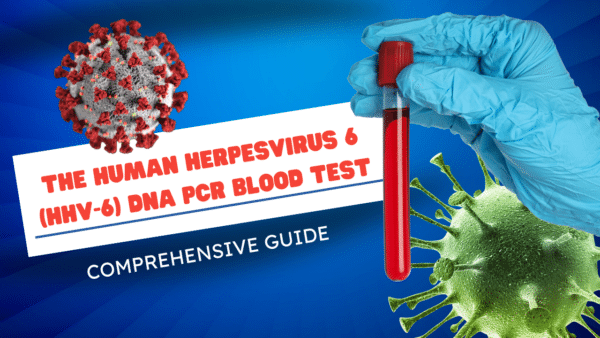What is Colorectal Cancer?
Colorectal cancer is a type of cancer that starts either in the colon or the rectum. Colon cancer and rectal cancer is commonly coined as colorectal cancer because they have many characteristics in common. Cells in any part of the body can become cancer and can spread to other areas of the body. When cells in the body start to grow out of control, cancer starts.
Colorectal cancer mostly starts as polyp – a growth on the innermost lining (the mucosa) of the colon or rectum. Polyps, although not all, can change into cancer over time. To understand further, understanding the parts and the importance of the colon and rectum is essential.
The colon and rectum make up the large intestine, which is part of the digestive system (gastrointestinal system). The large intestine is mostly made up of the colon, which can be described as a muscular tube. Colon absorbs water and salt from our food intake after it goes through the small intestine. The waste matter left after going through the colon goes into the rectum. The rectum stores the waste matter until it passes out of the body through the anus.
What are the types of Colorectal Cancer?
1. Adenocarcinomas
This type of cancer makes up most colorectal cancers. This starts in cells that make mucus to lubricate the insides of the colon and rectum.
2. Carcinoid tumors
These start from the hormone-making cells in the intestine.
3. Gastrointestinal stromal tumors (GISTs)
These start from cells in the wall of the colon. Some tumors are benign (not cancerous)
4. Lymphoma
This is also called cancer of the immune system. Though this type of cancer mostly starts in lymph nodes, they can also start in the colon and rectum.
5. Sarcomas
This cancer starts in the blood vessels, muscle layers, or other connective tissues in the wall of the colon and rectum. Sarcomas of the colon or rectum are rare.
What are the symptoms of Colorectal Cancer?
Some of the symptoms of colorectal cancer include (1) changes in bowel habits (2) diarrhea (3) constipation or bowel not being emptied properly (4) blood in stool that makes stools appear black (5) bright red blood coming from the rectum (6) bloating and abdominal pains (7) feeling of being full in the abdomen (8) fatigue or tiredness (9) unexplained weight loss (10) a lump in the abdomen or the back passage felt by a physician (11) unexplained iron deficiency in men or (12) in women after menopause. Most of these symptoms also indicate other possible conditions, hence it is important to see a physician if symptoms persist for 4 weeks or more.
The key to surviving any type of disease, colorectal cancer in this case, is to have yourself screened early.
What is Colorectal Cancer screening?
The U.S. Preventive Services Task Force recommends that one should be screened for colorectal cancer starting at the age of 45 or 50 as the majority of the cases are found in this age bracket. Nonetheless, if you have a family health history and think that you may be at risk (i.e. if you have an inflammatory bowel disease or genetic syndrome such as familial adenomatous polyposis) for colorectal cancer, there are screening tests that can be used even when a person does not have symptoms. Since colorectal cancer mostly starts as polyps, having screened early can also identify and find pre-cancerous polyps so they can be removed before they turn out to be cancerous.
Which Colorectal Cancer screening test is right for you?
There are several screening tests that can be used to find polyps or identify colorectal cancer. Below are the types of tests. Each has advantages and disadvantages. Remember to consult your doctor to find out which test is right for you. Tests usually vary depending on your preference, medical condition, and resources.
Stool & Blood Tests
The guaiac-based fecal occult blood test (gFOBT) and fecal immunochemical test (FIT), uses Guaiac and antibodies, respectively, to detect blood in the stool. It is usually done once a year. For this test, the health care provider usually provides a test kit. Inside the restroom, use the kit to obtain a small amount of stool. Once the stool sample is returned to the laboratory, the medical technician will check the presence of blood in your stool sample. The FIT-DNA, as the name suggests, combines FIT test with an altered DNA detecting test. For this, you collect an entire bowel movement and send it to the laboratory. The bowel will then be checked for cancer cells. It can be done once every one or three years. You can also take a simple blood test that we offer on our website. You can access that here.
Flexible Sigmoidoscopy
This screening involves putting a short, thin, flexible, lighted tube into your rectum. The doctor will check for polyps inside the rectum and lower part of the colon. This test can be done every 5 years. There are relatively fewer complications with a sigmoidoscopy than with the next screening test, colonoscopy. Tears in the lining of the colon and bleeding can occur but are rare.
Colonoscopy
Similar to flexible sigmoidoscopy, the doctor uses a thin and flexible lighted tube to check for polyps inside the rectum. However, the tube used here is longer so as to be able to check the entire colon, this time with a longer tube. This test can be done every 10 years for those who do not have an increased risk of colorectal cancer but is also used as a follow-through test to check if anything unusual is found during the other screening tests. Taking this test may include tearing in the lining of the colon and bleeding which imposes risks, but the chances of this being serious is relatively rare. Nonetheless, if the tearing is serious, this needs to be treated in a hospital. Tearing of the lining and bleeding may occur when a biopsy or polypectomy is done.
CT Colonography (Virtual Colonoscopy)
Computed tomography (CT) colonography, also called virtual colonoscopy, uses X-rays and technology to produce images of the entire colon. This will be displayed on a computer screen for the doctor to analyze. This test can be done every 5 years. Since CT colonography is not a physical exam like colonoscopy or sigmoidoscopy, this does not impose much risk. In fact, virtual colonoscopy can find problems with organs other than the colon such as chest, kidneys, liver, pancreas, spleen, and ovaries.
Colorectal cancer screenings are meant to help physicians determine cancer early which in turn helps patients live longer. Chances of recovery are better if the illness is found and treated at an early stage. Now that you know what colorectal cancer is, its types, symptoms, the importance of early screening and the details of the tests, let this article help you live a colorectal cancer-free life.
If you would like more information on how to order a Colorectal Cancer Blood Test online. Shop our entire collection of cancer screenings online from the privacy of your home without a doctor’s visit or prescription.
References
- American Cancer Society. Colorectal Cancer Facts & Figures 2017-2019. Atlanta, Ga: American Cancer Society; 2017.
- Sigurdson ER, Benson AB, Minsky B. Cancer of the rectum. Abeloff’s Clinical Oncology. 5th ed. Philadelphia, Pa. Elsevier: 2014
- Division of Cancer Prevention and Control, Centers for Disease Control and Prevention; 2020.
- National Cancer Institute. Precision Medicine in Cancer Treatment; 2020.
Brazier, Y. Medically reviewed by Christina Chun, MPH. Colorectal cancer: What you need to know; 2018. https://www.medicalnewstoday.com/articles/155598

